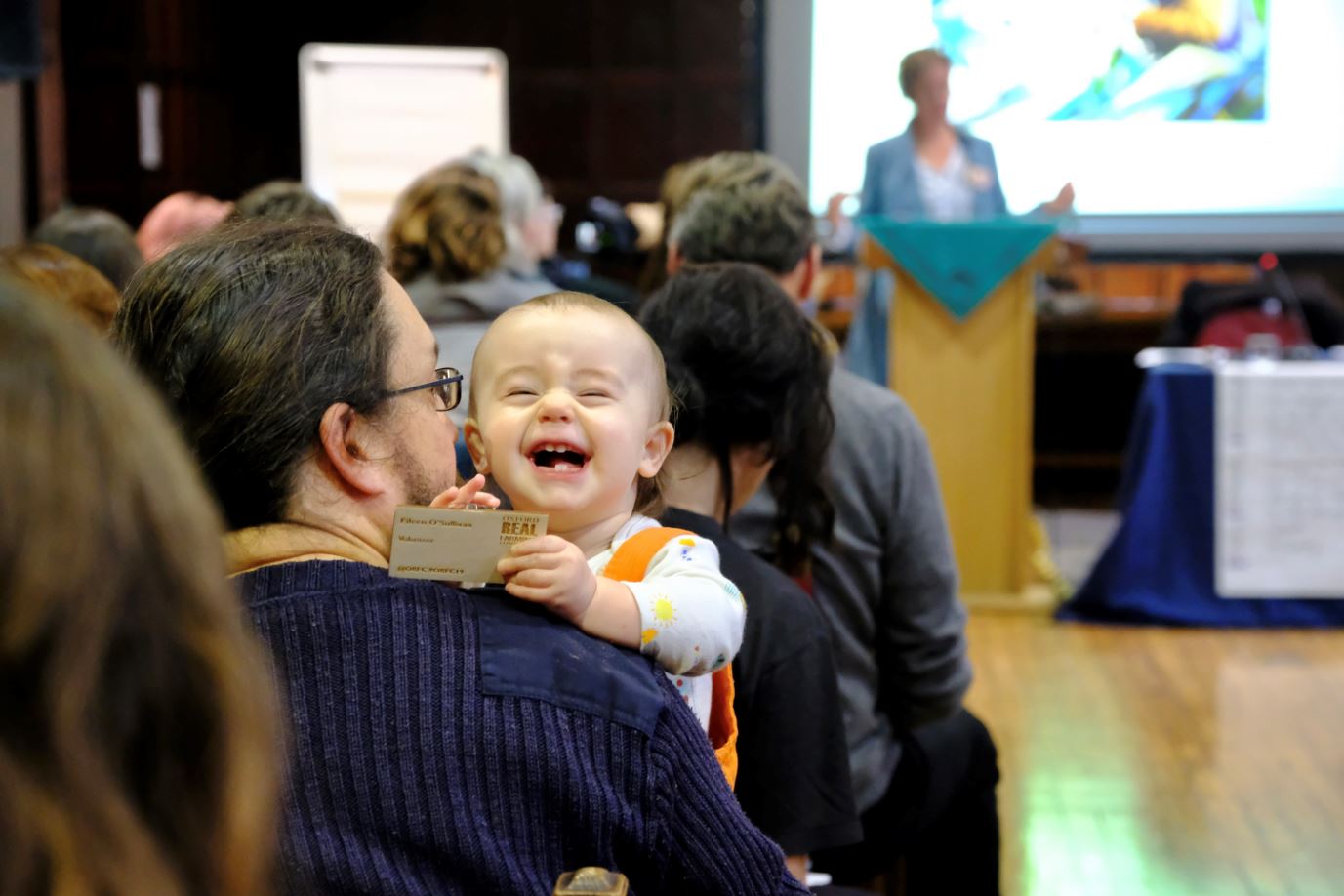
Over a 1,000 food producers, farmers and activists gathered to discuss how to create an alternative food and farming system at the largest-ever Oxford Real Farming Conference (ORFC), held in Oxford last week.
The sell-out event took place as usual on the same day as the Oxford Farming Conference, a rival event and more traditional conference for the agri business and large-scale farming industry.
Speakers tackled key issues around food sustainability from the perspective of challenging the status quo, with talks on how agroecology should be included in the Agriculture Bill, how to scale up box schemes and community agriculture, the debate around what makes sustainable veganism, and feminism in agriculture.
Conference manager Tom Simpson said: “We’re so delighted to see that enthusiasm for the Oxford Real Farming Conference growing year after year, and believe it reflects the changing mindset in what good farming, food production and land stewardship looks like. The status quo is rightly being challenged.
Tom added: “We have our usual diverse crowd of delegates, which is made up of around 50 per cent mud-on-the-boots farmers, and a mix of activists, food producers, and new entrants. We have 240 speakers – of whom more than half are women – and over 100 sessions. We’re celebrating our tenth birthday in style.”
Environment minister Michael Gove attended the conference for a Q&A session with his parliamentary colleague and Labour MP Kerry McCarthy, during which he was questioned on the place of agroecology and organics in the upcoming agriculture bill.
He said: “Food security rests on ensuring we have a resilient environment, that’s why things like soil quality matter so much. We have the opportunity to lead the world in the most progressive food system.”
Colin Tudge, ORFC co-founder, said: “While Mr Gove says all the right things and is enthusiastically knowledgeable on a wide variety of issues that are important to the ORFC, he remains difficult to pin down on vital details, such as why agroecology and organic farming continue to be omitted from the Agriculture Bill, despite widespread support for its inclusion and his personal support for the environmental protections whole-farm systems bring.”

Diverse areas of the food system were represented across the conference, including during a session on food, farming and feminism, and a session on how to scale up box schemes and community agriculture projects that work with small-scale growers.
Julie Brown, head of Hackney-based food network Growing Communities, said: “We prioritise trading with small-scale agroecological farmers, where the productivity compares favourably, and in some cases exceeds conventional models. This scale of business has a significant potential to create a sustainable food system.
“We pay our biggest potato grower 65p per kg, which compares to farmgate prices of around 11p per kg. He’s not five times richer as essentially this cost enables him to cover the externalities of growing, currently disregarded by the supermarkets. Essentially we pay them what they ask.”
Doing things differently, through using fewer pesticides or paying farmers fairly, was at the heart of the conference. Kath Dalmeny, chief executive of food sustainability group, Sustain, used her slot in a session on the People’s Food Policy to talk about how change can be achieved. “We’re constantly reframing these issues so people can hear it. You have to find the thing that works for someone and that helps them to take the action they need to take.”
In a session on veganism, re-wilding pioneer and farmer Isabella Tree brought the perspective back to the major issue of climate change and greenhouse gases. “To assume we can fix the world by giving up meat is to shift the focus away from the big problem, which is fossil fuels.”















0 Comments